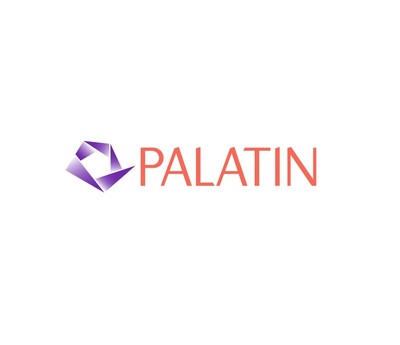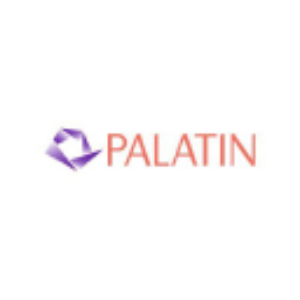Inflammatory Disease Healing Data via Palatin's Novel Melanocortin Receptor Agonists Presented at the 19th Annual Peptide Therapeutics Symposium
Palatin Technologies (NYSE American: PTN) presented clinical and preclinical data on three melanocortin agonists at the 19th Annual Peptide Therapeutics Symposium. The presentation highlighted: PL9643 showing statistical significance in treating dry eye disease; PL8177 demonstrating effectiveness in reducing colonic damage and inflammation in ulcerative colitis models; and PL9654 showing promise in treating retinal diseases by reducing vision loss and photoreceptor degeneration. The data supports using melanocortin agonists to treat inflammatory diseases without immunosuppression.
Palatin Technologies (NYSE American: PTN) ha presentato dati clinici e preclinici su tre agonisti melanocortinici al 19° Simposio Annuale sulle Terapie Peptidiche. La presentazione ha evidenziato: PL9643, che mostra una significatività statistica nel trattamento della sindrome dell'occhio secco; PL8177, che dimostra efficacia nella riduzione dei danni e dell'infiammazione colica in modelli di colite ulcerosa; e PL9654, che mostra promettente potenziale nel trattamento delle malattie retiniche riducendo la perdita della vista e la degenerazione dei fotorecettori. I dati supportano l'uso di agonisti melanocortinici per trattare le malattie infiammatorie senza immunosoppressione.
Palatin Technologies (NYSE American: PTN) presentó datos clínicos y preclínicos sobre tres agonistas melanocortínicos en el 19º Simposio Anual de Terapias Peptídicas. La presentación destacó: PL9643, que mostró una significación estadística en el tratamiento de la enfermedad ocular seca; PL8177, que demostró efectividad para reducir el daño colónico y la inflamación en modelos de colitis ulcerosa; y PL9654, que mostró promesas en el tratamiento de enfermedades retinianas al reducir la pérdida de visión y la degeneración de fotoreceptores. Los datos respaldan el uso de agonistas melanocortínicos para tratar enfermedades inflamatorias sin inmunosupresión.
팔라틴 테크놀로지스 (NYSE American: PTN)는 제19회 연례 펩타이드 치료 심포지엄에서 세 가지 멜라노코르틴 작용제에 대한 임상 및 전임상 데이터를 발표했습니다. 발표에서 강조된 내용은: PL9643, 안구 건조증 치료에서 통계적 유의성을 보여주었고; PL8177, 궤양성 대장염 모델에서 대장 손상 및 염증 감소에 효과적임을 입증하였으며; PL9654, 시력 손실 및 광수용체 퇴화를 줄여 망막 질환 치료에 유망함을 보여주었습니다. 이러한 데이터는 면역 억제 없이 염증성 질환 치료를 위한 멜라노코르틴 작용제의 사용을 뒷받침합니다.
Palatin Technologies (NYSE American: PTN) a présenté des données cliniques et précliniques sur trois agonistes des mélanocortines lors du 19e Symposium Annuel sur les Thérapies Peptidiques. La présentation a souligné : PL9643, montrant une signification statistique dans le traitement de la maladie de l'œil sec ; PL8177, démontrant son efficacité dans la réduction des dommages coliques et de l'inflammation dans des modèles de colite ulcéreuse ; et PL9654, montrant un potentiel prometteur pour le traitement des maladies rétiniennes en réduisant la perte de vision et la dégénérescence des photorécepteurs. Les données soutiennent l'utilisation des agonistes des mélanocortines pour traiter les maladies inflammatoires sans immunosuppression.
Palatin Technologies (NYSE American: PTN) stellte beim 19. jährlichen Symposium für Peptidtherapien klinische und präklinische Daten zu drei Melanocortin-Agonisten vor. Die Präsentation hob hervor: PL9643, das statistische Signifikanz bei der Behandlung des trockenen Auges zeigte; PL8177, das Wirksamkeit bei der Reduzierung von Kolonschäden und Entzündungen in Modellen der Colitis ulcerosa demonstrierte; und PL9654, das vielversprechend bei der Behandlung von Netzhauterkrankungen ist, indem es den Sehverlust und die Degeneration der Photorezeptoren verringert. Die Daten unterstützen die Verwendung von Melanocortin-Agonisten zur Behandlung von entzündlichen Erkrankungen, ohne eine Immunsuppression zu verursachen.
- PL9643 demonstrated statistically significant effectiveness in treating dry eye disease
- PL8177 showed positive results in reducing colonic damage and inflammation in ulcerative colitis models
- PL9654 demonstrated effectiveness in reducing vision loss and photoreceptor degeneration
- None.
Insights
The presented data on three melanocortin agonists shows promising therapeutic potential in inflammatory diseases. PL9643 demonstrated significant efficacy in dry eye disease with notable safety profile, setting it apart from current treatments. PL8177 for ulcerative colitis showed positive preclinical results in reducing colonic damage and inflammation, with Phase 2 results expected this year. PL9654 exhibited potential in treating retinal diseases by reducing vision loss and inflammation in preclinical models.
The key differentiator is the non-immunosuppressive approach to treating inflammation, which could offer a better safety profile compared to existing treatments. The multi-receptor targeting strategy across different tissues (eye, gut, retina) demonstrates the platform's versatility. However, most data remains in early to mid-stage development, requiring substantial clinical validation before commercial viability.
- Data presented from clinical and preclinical studies
- Melanocortin agonism reduces stress signaling and resolves inflammation
- Potential to treat inflammatory diseases without immunosuppression
"The impressive data supports the use of melanocortin agonists to treat inflammatory diseases safely without immunosuppression," said Carl Spana, Ph.D., President and Chief Executive Officer of Palatin.
The poster presentation illustrates data from clinical and preclinical studies for three proprietary melanocortin agonists:
- PL9643 ophthalmic solution demonstrated effectiveness with statistical significance across multiple clinical signs and reduced symptomatic ocular pain in the Phase 3 MELODY-1 clinical trial. This demonstrates that PL9643 has a positive effect across multiple regions of the eye in patients with moderate and severe dry eye disease (DED), with an excellent ocular safety/tolerability profile. PL9643 offers a potentially differentiating efficacy and safety/tolerability profile from currently available treatments for DED.
- Oral PL8177 effectively reduced colonic damage and inflammation, and improved stool consistency and fecal occult blood in rat animal models of ulcerative colitis (UC). These results were supported by histopathological analysis and by snRNA-seq data. PL8177 treatment improved the total colitis index in the rat model and biased gut macrophages to the anti-inflammatory M2 state in the same animals. Interim results from an in-progress Phase 2, double-blind safety and efficacy trial in adult participants with active UC is expected later this year.
- Subcutaneous BID administration of PL9654 reduced vision loss and photoreceptor degeneration in the streptozotocin (STZ) rat model. Genomic and proteomic analysis illustrates that PL9654 0.05 mg/kg causes a reduction in microglia and negative enrichment of genes associated with immune-related pathways, with a simultaneous increase in pro-resolution, suggesting a reduction in inflammatory processes. PL9654 is Palatin's lead development compound for treating various retinal diseases.
About the Peptide Therapeutics Symposium
The Peptide Therapeutics Symposium was established in 2005 as an annual scientific meeting that brings together world leaders in peptide research from academia and the biopharmaceutical industries. The meeting focuses on advances in core technology pertinent to peptide-based drug discovery and therapeutic candidate development.
About Melanocortin Receptor Agonists and Inflammation
The melanocortin receptor ("MCR") system has effects on inflammation, reduction in stress signaling, immune system responses, metabolism, food intake, and sexual function. There are five melanocortin receptors, MC1R through MC5R. Modulation of these receptors, through use of receptor-specific agonists, which activate receptor function, or receptor-specific antagonists, which block receptor function, can have medically significant pharmacological effects. Many tissues and immune cells located throughout the body, including the gut, kidney and eye, express melanocortin receptors, empowering our opportunity to directly activate natural pathways to resolve disease inflammation. Drugs based on melanocortin agonists have been approved by the FDA for treating several conditions, including female sexual dysfunction, inflammatory/autoimmune diseases, and rare forms of genetic obesity.
About Palatin
Palatin is a biopharmaceutical company developing first-in-class medicines based on molecules that modulate the activity of the melanocortin receptor systems, with targeted, receptor-specific product candidates for the treatment of diseases with significant unmet medical need and commercial potential. Palatin's strategy is to develop products and then form marketing collaborations with industry leaders to maximize their commercial potential. For additional information regarding Palatin, please visit Palatin's website at www.Palatin.com and follow Palatin on Twitter at @PalatinTech.
Forward-looking Statements
Statements in this press release that are not historical facts, including statements about future expectations of Palatin Technologies, Inc., such as statements about Palatin products in development, clinical trial results, potential actions by regulatory agencies including the FDA, regulatory plans, development programs, proposed indications for product candidates, and market potential for product candidates are "forward-looking statements" within the meaning of Section 27A of the Securities Act of 1933, Section 21E of the Securities Exchange Act of 1934 and as that term is defined in the Private Securities Litigation Reform Act of 1995. Palatin intends that such forward-looking statements be subject to the safe harbors created thereby. Such forward-looking statements involve known and unknown risks, uncertainties and other factors that could cause Palatin's actual results to be materially different from its historical results or from any results expressed or implied by such forward-looking statements. Palatin's actual results may differ materially from those discussed in the forward-looking statements for reasons including, but not limited to, results of clinical trials, regulatory actions by the FDA and other regulatory and the need for regulatory approvals, Palatin's ability to fund development of its technology and establish and successfully complete clinical trials, the length of time and cost required to complete clinical trials and submit applications for regulatory approvals, products developed by competing pharmaceutical, biopharmaceutical and biotechnology companies, commercial acceptance of Palatin's products, and other factors discussed in Palatin's periodic filings with the Securities and Exchange Commission. Palatin is not responsible for updating events that occur after the date of this press release.
Palatin Technologies® is a registered trademark of Palatin Technologies, Inc.
![]() View original content to download multimedia:https://www.prnewswire.com/news-releases/inflammatory-disease-healing-data-via-palatins-novel-melanocortin-receptor-agonists-presented-at-the-19th-annual-peptide-therapeutics-symposium-302285628.html
View original content to download multimedia:https://www.prnewswire.com/news-releases/inflammatory-disease-healing-data-via-palatins-novel-melanocortin-receptor-agonists-presented-at-the-19th-annual-peptide-therapeutics-symposium-302285628.html
SOURCE Palatin Technologies, Inc.








